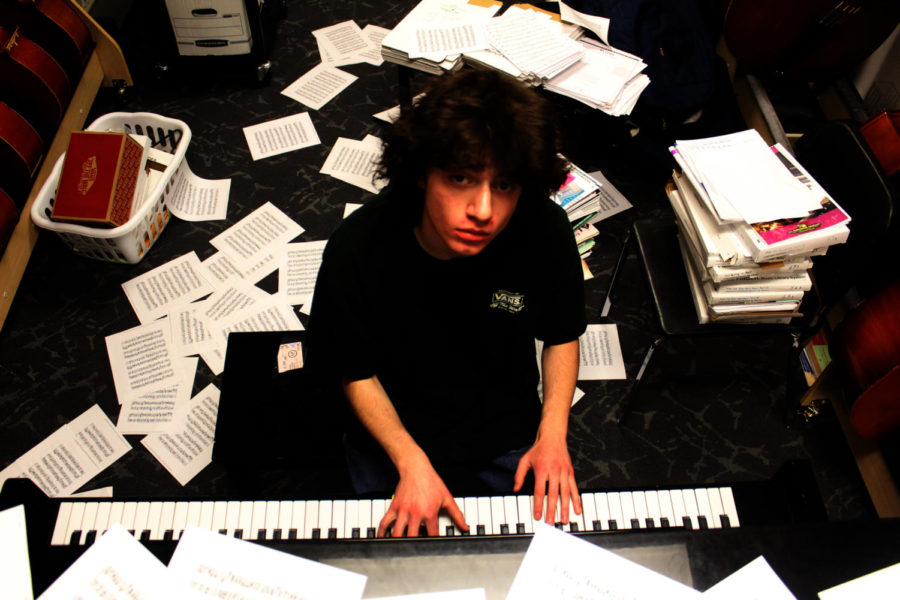In the zone
Students use art and music as a way to cope with stress
Jack Weisbart ‘24 spends free time playing piano.
As he sits down at his piano with stiff fingers and proper hand positions, Jack Weisbart ‘24 begins to play. Each music note floats through the room, and his tension floats away with them.
At the same time, Jett Trippy ‘22 sits by the mountains. He aimlessly sketches each peak with an old pencil he found at the bottom of his bag. Instead of aiming for a perfect picture, he hopes to find serenity.
They both had a hard day. They both find tranquility in their art.
Trippy describes himself as an angry, aggressive kid who struggled with ADHD and hemophilia A, a bleeding disorder.
“Because of my bleeding disorder I wasn’t really allowed to do sports when I was younger, especially in elementary school where kids are generally rowdy,” Trippy said. “I had pretty bad ADHD. I was an especially rowdy kid.”
Without sports, he turned to fighting.
His emotions were so intense and overwhelming that he didn’t know where to channel them. “I was extremely violent,” Trippy said. “From, like, second to sixth grade I was just fighting and punching people.”
Mental health is a big part of people’s lives as Karin Dudek, an intervention specialist has seen first hand.
“It’s really important to have something that makes a positive impact on your mental health,” she said. “It keeps your perspective positive instead of getting bogged down with the hard things.”
During his sophomore year in high school Trippy found his positive outlet.
“I was never really the type to sit down and create something, but I had a lot of imagination,” he said. “That finally changed when I took Draw and Paint 1 sophomore year.”
When others were painting butterflies and trees, his creations were far darker.
“Doing art sets a new neural pathway in your brain and can kind of reset it a bit,” Dudek said. “When you’re stressed, art can help you pull it back in and focus it on something.”
Art allows Trippy to release his intrusive, violent thoughts and escape chaos. “I put my feelings into art,” he said.
Art teacher Julie Makely knows how helpful art can be. “I think arts, especially in this time of chaos and uncertainty, have been a tremendous outlet for many people,” Makely said.
Almost anything can be a release.
“Even just doodling can be an outlet,” she said. “It can change your state of mind.”
Similar to traditional art, music eases stress. “Art can put you in the zone, music too, it does the same thing. It changes your whole thought process.” Makely said.
Weisbart uses music the way Trippy uses art.
Weisbart discovered his comfort in music at a young age and it now accompanies him around the clock.
“I’ve been playing piano since I was four,” he said. “I just can’t even remember a time not singing.”
Music is the perfect way for him to destress, especially in the midst of the chaos that is high school.
“If I’m having a stressful day, I just come home and figure something out musically,” Weisbart said.
Weisbart constructs his own realm of comfort through music. The struggles of the day move aside and music takes their place.
“I can just get lost in the focus and intensity of music. I just feel so relaxed,” Weisbart said. “Play something on the guitar or piano. It’s just a big part of relieving stress. It is a huge part of my life.”
With each music note Weisbart’s stress fades away, with each color Trippy’s anger lifts.
But, music and art are not the only ways to deal with stress.
“I always say, give yourself time when you get home to do something you love,” Dudek said. “Anything to take you out of that for a little bit and let your body and brain decompress helps.”
“Art opposed to just being overwhelmingly angry all the time. Art helps me feel emotion in a positive way,” Trippy said.































